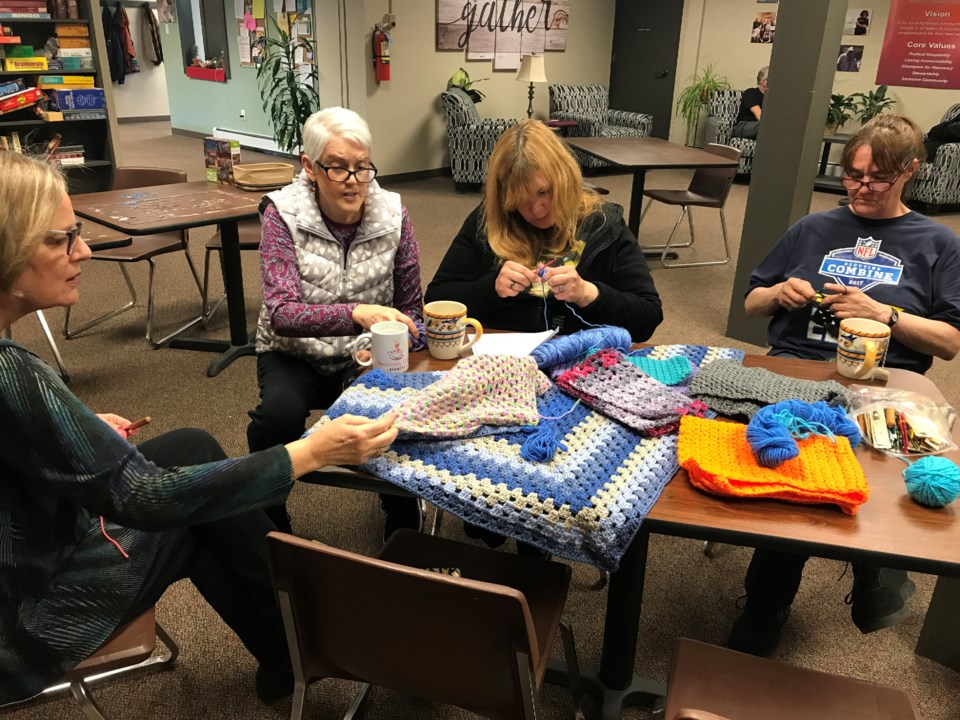For those seeking in-person connection to help them maintain their sobriety will again be able to do so at Longmont’s Recovery Café beginning today.
“Recovery Café Longmont supports adults as they rebuild their lives and break the cycle of addiction, or overcome a recent crisis or trauma. We strive to stand in the gap between crisis and stability by fostering community-building and life-empowerment,” according to its website.
In response to the coronavirus pandemic, Recovery Café in March closed to in-person appointments. It was able to reopen for a few months from July to November before the virus forced it back online.
With Boulder County in orange level status on the state’s COVID dial dashboard and new COVID-19 protocols in place, Recovery Café is opening its doors to some in-person sessions.
While the virus kept the doors closed, Recovery Café continued its work through virtual sessions, said Executive Director Lisa Searchinger.
“The nature of our service model is to be together in community,” she said. “We know that human connection is a basic human need and very often it is said that the opposite of addiction is not sobriety, the opposite of addiction is connection. … Being virtual is just not the same as being in community with other human beings.”
In a TED talk in 2015, best-selling author Johann Hari shared his questions and discoveries about addiction after watching his loved ones struggle. After looking around the world, he found in places such as Portugal, where human connection was supported, addiction problems declined.
Taking the idea that we all need connection further, Recovery Café welcomes anyone who is facing trauma, including those struggling with divorce, homelessness, mental health and major illness, just to name a few.
“We are all recovering from something,” Searchinger said. “Human connection is really what keeps people in recovery, stable in their recovery.”
Two-thirds of adults report feeling socially isolated, according to a survey conducted in October by the AARP Foundation and the United Health Foundation.
“Being lonely and isolated is hard for all of us but if you are already struggling to recover from a trauma, it’s even more devastating,” Searchinger said.
Searchinger’s team found that after the cafe closed the first time, it was easier for members to stay connected, however, the organization had much less success connecting with people virtually.
“We’ve seen some of our members struggle with recovery since we have been closed, especially those who didn’t have strong support systems and counted on us for that support,” Searchinger said.
The Recovery Café reported that from May 29 to Dec. 31, 2019 it had 176 unique visits with 82 members enrolled in the program. Those numbers declined dramatically to 71 unique visits and 38 members for all of 2020.
In an effort to keep connected with members, the Recovery Café doubled its phone support hours, now available from 11 a.m. to 7 p.m. Monday through Saturday. Those in need of support can call 720-815-2885.
Recovery Café, located at Central Presbyterian Church, 402 Kimbark St., is open to anyone who would like to visit. After an initial visit, individuals are invited to become members. There is no fee to become a member, just three requests:
- To be drug- and alcohol-free for 24 hours.
- To meet weekly with a “small, loving accountability group” called a Recovery Circle.
- To contribute by helping to maintain the physical space and “to create a culture of healing and unconditional love.”
Each meeting includes a meal to create more community, Searchinger said, adding that groups will meet outside as much as the weather will allow.
The Recovery Café will be open for in-person services from noon to 3 p.m. Tuesdays and Saturdays. Learn more here.


